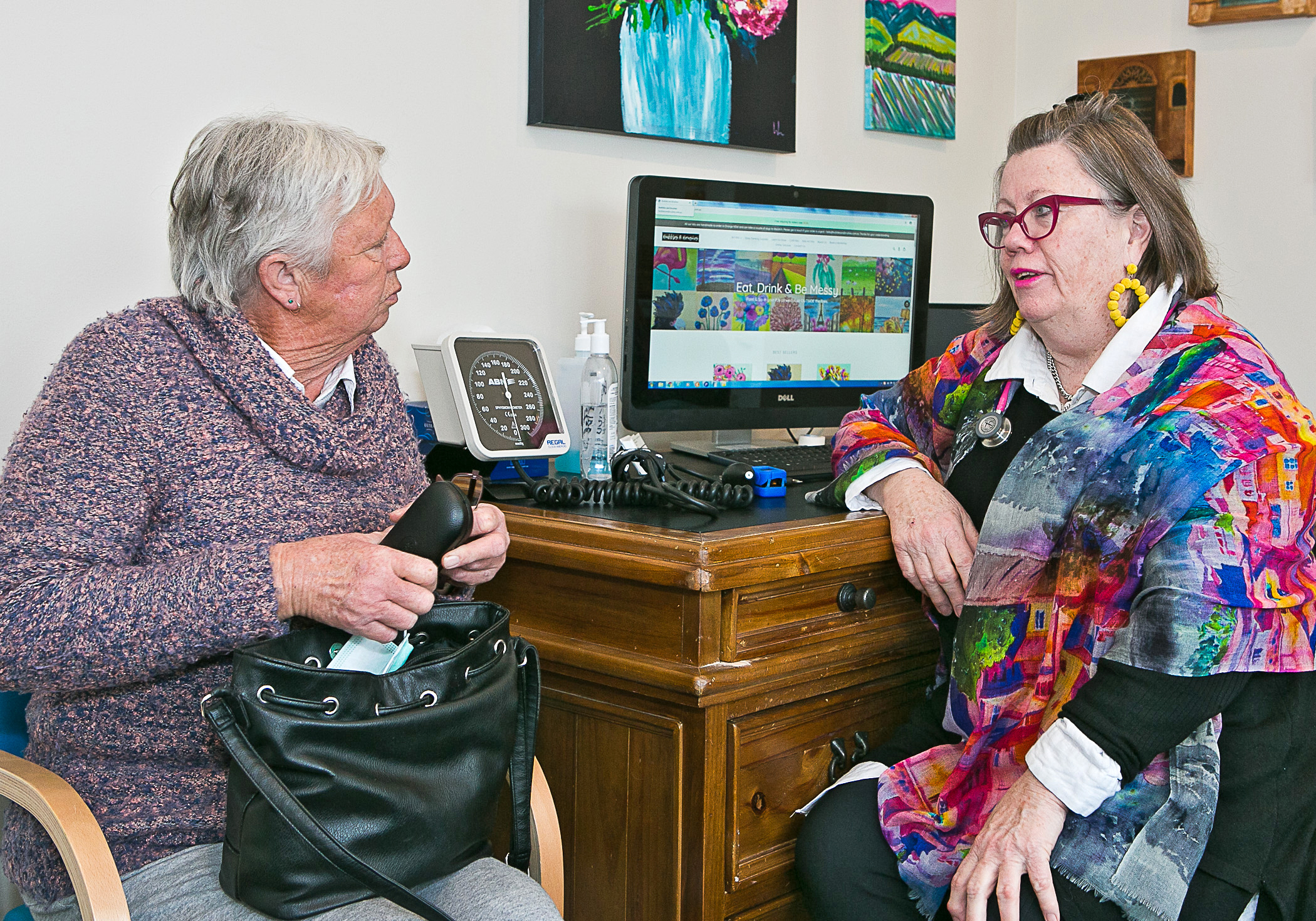Memory Health Support Service
The Memory Health Support Service (MHSS) is a nurse clinic focused on helping people living with dementia and their carers, in the large regional city of Ballarat in central Victoria. Set within a community health service, it operates less as a separate clinic and more as an integrated service within all consultations. It supports GPs to consider cognition capacity when treating other health issues.
See how the MHSS applied the building blocks in establishing their clinic
See the patient flow and MBS items used in the MHSS

 A clear plan
A clear plan
Experienced RN Caroline Gibson was working as a dementia support nurse with district nursing when she realised people with dementia weren’t getting what they needed from primary care.
Victorian government data about current and predicted prevalence of dementia in the region helped justify the need for the clinic. As one in ten over-65s have dementia, it was possible to look at the health service patient cohort and forecast numbers of potential clinic patients.
The goal was to provide an alternate avenue of support for patients and carers experiencing concern with memory, identifying cognitive causes behind health or activities of daily living issues; linking to services and creating care plans. A successful model could potentially be replicated in other GP settings.
Establishing a budget was challenging, and help was sought from one of the team managers who helped refine estimates of clinic costs.
 Funding
Funding

The Memory Health Support Service was supported during its initial establishment with a grant from Ballarat Community Health along with some support funding from the Australian Primary Health Care Nurses Association (APNA), as part of the clinic’s involvement in the APNA Enhanced Nurse Clinic project. Now established, the Memory Health Support Service is funded entirely through existing Medicare Benefit Scheme items.
 Location and facilities
Location and facilities

The Memory Health Support Service (MHSS) operates from the existing practice nurse consulting and treatment space within Ballarat Community Health Service.
 Staffing and HR
Staffing and HR

The MHSS is integrated into the chronic disease management approach of the broader practice. This contributed to the overall acceptance of the model and assisted with communication across the team. And while finding time for meetings between the four clinics did at times hamper communications in the early stages, this improved over the course of the project..
Five nurses have now been trained as part of the clinic’s focus on memory health. Professional development included online dementia training, which looked at strategies and responses for patients with memory loss. Education targeting health coaching and motivational skills was also provided, and a two-day training session on nursing in leadership was valuable.
Marketing in the community was only minimal, as it was felt patients should come from the existing cohort. Local aged community care services were visited and input sought.
 Best-practice care
Best-practice care

The nurse clinic can spend up to an hour with a patient, getting to know them and their families.
A general lack of practice nurse guidelines for dementia care has made it challenging to establish a model of care. The iterative quality improvement approach, using PDSAs, was useful in setting up this clinic.
 Patient engagement
Patient engagement

The MHSS is integrated into the general practice’s chronic disease management process with discussion on memory health incorporated into the conversation the nurses have when developing a GPMP. If a patient is identified who requires further input, the nurse alerts the GP and additional appropriate care is provided.
Providing training to the GPs and nurses on cognitive decline and the actions available to support patients experiencing this, was a key activity of the project. Health coaching and motivational interviewing techniques have also been adopted by the team, and are considered core competencies for the clinic.
 Supporting systems and processes
Supporting systems and processes

The clinic uses a patient register recall and reminder process, presently run by one of the nurses rather than by administration staff. Engaging the administration team in the necessary processes for the clinic was important in establishing patient access to, and movement through the clinic.
 Evaluation and improvement
Evaluation and improvement

Increasing referrals from GPs are a sign the clinic is getting results. Nurses involved report a growing confidence in writing care plans for people living with dementia and their carers. Stories from individual patients and carers provide proof that patients are seeing an improved quality of life and family members are receiving more support to keep loved ones safe.
